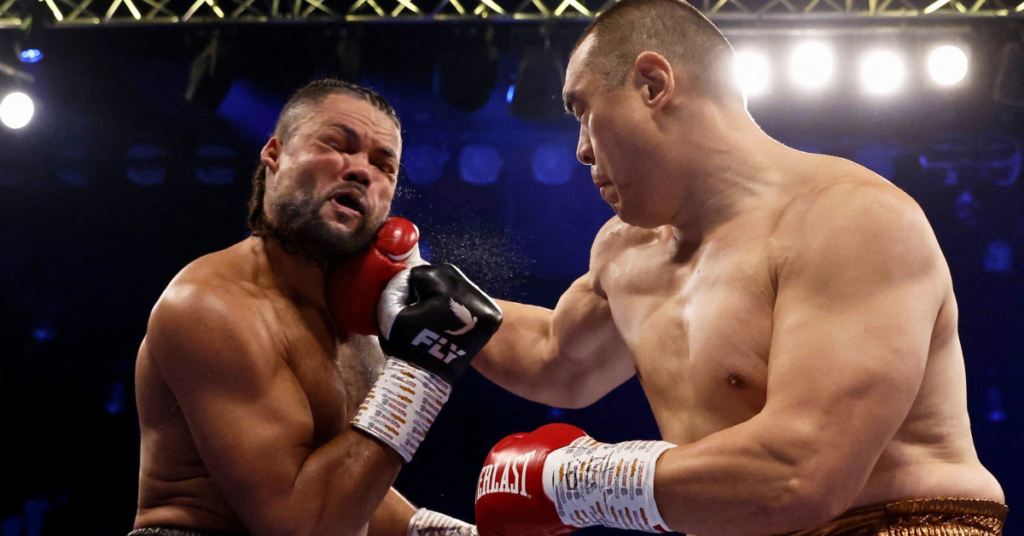UFC explained: Here’s how UFC scoring works

Mixed martial arts is an exciting sport to follow because of the diversity within it. This is not just the number of superb fighters to watch, with their own personalities from various backgrounds, but also the MMA competitions to keep tabs on. The UFC is a classic example and still arguably THE biggest MMA brand for fight fans.
This sees UFC events always draw huge crowds in person and via PPV to catch the latest drama. Lots of fans also like to place bets on UFC bouts and get closer to the action through sports wagering. Betting on matches in this MMA competition is also a great way to add more interest to watching them.
If you like to bet on UFC contests, one thing that you may wonder is how UFC scoring works. This is key to think about for bettors all over the world, but certainly somewhere like Canada where UFC has a large following.
For gamblers in Canada, how clashes are scored could have a real impact on how they might finish and the bets Canadians place on it as a result. This is also true for gamblers in other parts of the world. Even if you do not wager on MMA bouts, knowing how scoring works in this tournament is interesting to dig into.
How does scoring in UFC work?
Each UFC bout has three judges sitting beside the octagon to score the fight. Their job is to score each round of the contest, as they see it. If either fighter does not get the win during the allocated number of rounds, the result will be determined by the judges’ scores. This means the best fighter, according to the judges, and the one with the most points overall wins.
As you can imagine, this means UFC judges have a massively important role to play and how they score a contest can be decisive. If either fighter cannot grab a knockout or stoppage during the allocated rounds, how the clash has been scored settles things. It is key to note that the decision of the judges in these instances is final.
How does the UFC scoring system work?
From what Israel Adesanya said to Sean Strickland after UFC 293 to Francis Ngannou’s bout against Tyson Fury outside of UFC, this is always a competition with interesting stories to read. Finding out how UFC scoring works is also fascinating⎯but how are bouts scored?
UFC judges use a 10-point system to achieve this. Each of the three judges use this system when the fight is on to score it individually. The winner of each round is given 10 points by the judge, while the loser is given 9 or less (depending on how badly they did). If the contest is not over when the allocated rounds are complete, the judges’ scorecards are added up and the fighter with the most points wins.
What do UFC judges look for when scoring bouts?
The major thing all UFC judges will look at when scoring fights is which competitor appears to be dominant in each round and who seems to be strongest overall. This can relate to both standup fighting action and what happens in the clinch/on the ground. As you might expect, the fighter who appears most dominant usually scores 10, whilst their opponent scores less.
Within this though, there are certain criteria most judges will focus on. Effective striking is one, and this is defined as a legal blow that hurts or has a noticeable impact on the opponent. A good example of this is a UFC fighter landing a powerful straight right on his opponent’s chin that rocks him. As this is UFC, effective striking can also refer to kicks, knees, and elbows. If a fighter lands lots of legal, effective strikes in a round and his opponent doesn’t, he is likely to come out on top in terms of scoring.
Grappling and octagon control
Takedowns and grappling are a major part of any UFC bout⎯they play a key part in how contests are scored. The main thing to understand about how judges view grappling lies in how effective it is. If a fighter takes their opponent to the floor, for example, and attempts to finish things, this will be looked on favorably. If they instead just hold them in place without really trying to advance their position, it might not score so well.
The last major criteria UFC judges can focus on when scoring bouts is octagon control. This generally refers to how well a fighter dominates the center of the octagon and sets the pace of the clash. As the person who controls the center of the octagon can determine where the action happens, this can help them perform better and score well with judges. Octagon control can also simply be about the fighter who shows good judgment around distance and good ringcraft when moving around their opponent.
Which factors do not impact UFC scoring?
In addition to the factors that do influence how UFC fights are scored, it is key to know those that do not. This is despite factors like this sometimes looking like they would count, or fight fans believing they do. The most common factors that do not affect UFC scoring include
- Amount of blood a fighter loses
- Being the most aggressive⎯even if all their strikes miss or do not cause damage
- Verbal exchanges in the octagon
As the above shows, there are some common things that happen in a UFC contest that do not influence the outcome⎯even though you might think they would. For judges who are doing the scoring, it is key to keep this in mind and avoid factors that should not impact the scores making their impression felt.
Why is UFC scoring sometimes controversial?
As in other combat sports, UFC scoring can sometimes be controversial and produce decisions that seem baffling. You only have to look at the 2020 Jon Jones vs Dominick Reyes result for proof of this! But why is this the case?
It simply comes down to scoring being a subjective business and something that is individual to each judge watching a fight. The subjective nature of scoring a contest means different people can see events in totally different ways. One judge might class a kick thrown as an effective strike whilst another may not, for example.
By the same token, watching fans might think one fighter has been aggressively on top all bout but the judges might disagree or think his opponent has landed more effective blows. It’s easy to see how one judge might score the same fight differently to the person sitting next to him⎯or to many fans watching the same clash.
UFC scoring is worth getting to grips with
The above sets out the basics of how UFC fights are scored and what judges look for when scoring them. This is certainly something that fans of MMA will find interesting and can bear in mind when watching the next big UFC bout.
For even more fun, you could try scoring the fight yourself according to the above criteria and see who you think wins each round. For those who like to bet on UFC clashes, scoring is not only fascinating to learn more about but also essential in predicting how bouts may end if they go to the cards.
This article was written by Jake Skudder from Gambleontario, a successful sports focused writer and Editor in Chief, committed to offering insights into UFC scoring.






